Worship
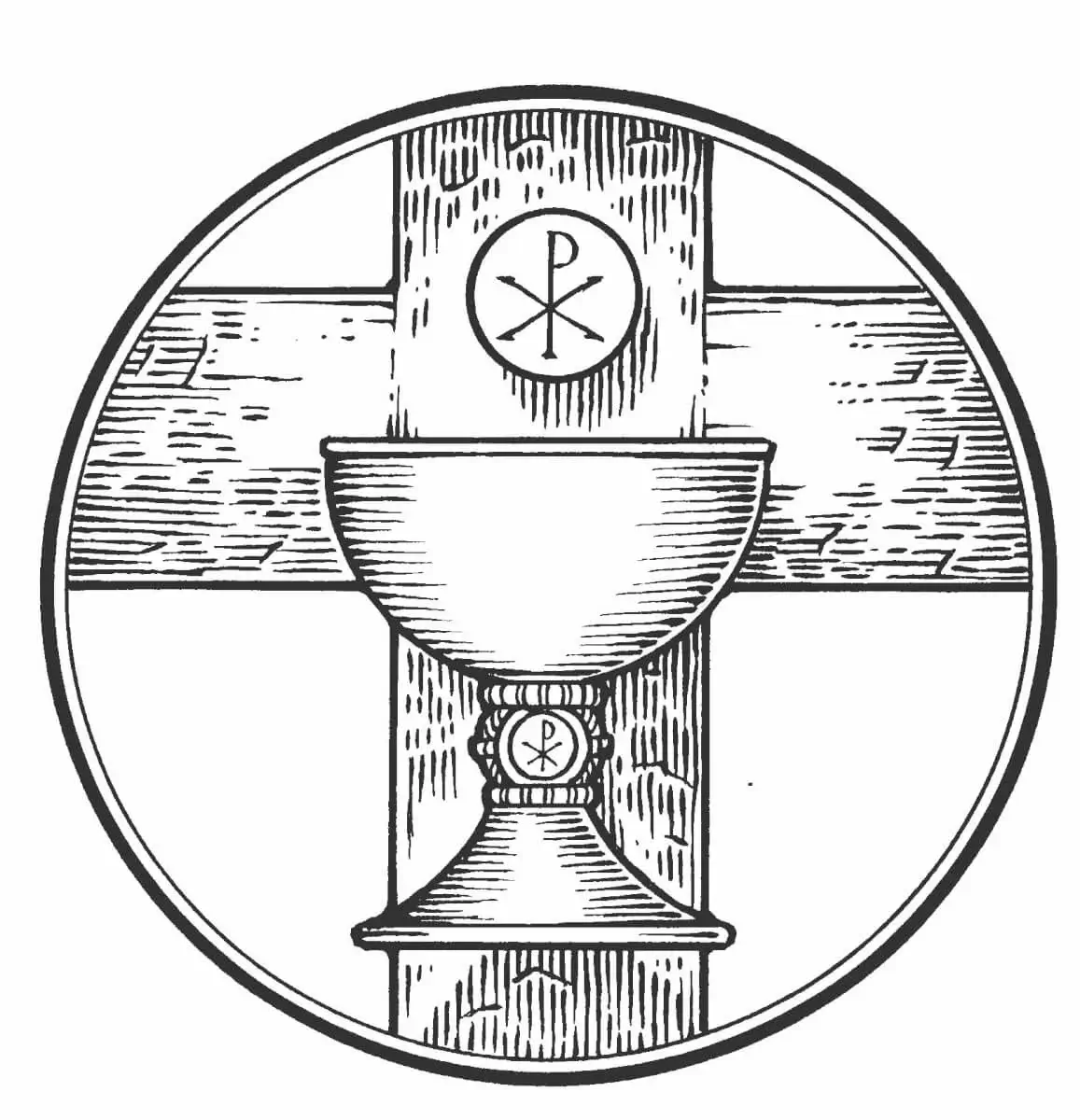
What Is the Divine Service?
The worship service at Trinity Lutheran Church is called the Divine Service, which means “Service of God.” People usually think of worship as us serving God. And while that certainly happens at Trinity, the focus of the Divine Service is actually God serving us. In fact, this is the primary purpose of our worship: to be served by God. It’s a beautiful thing that God actually wants to serve us. Jesus says, “The Son of Man came not to be served but to serve” (Matthew 20:28). Jesus’ great service to us, of course, was His suffering and death on the cross for the forgiveness of our sins. But He continues to serve us now. Our Lutheran Confessions state it clearly: “God wants Himself to be known, He wants Himself to be worshiped, in such a way that we receive benefits from Him and receive them because of His mercy, not because of our merits. This is the richest consolation in all afflictions” (Apology of the Augsburg Confession, Article IV.60). Jesus gathers us together in the Divine Service to receive His Word, His forgiveness, His body and blood, His mercy; and we respond with prayer, praise, and thanksgiving.
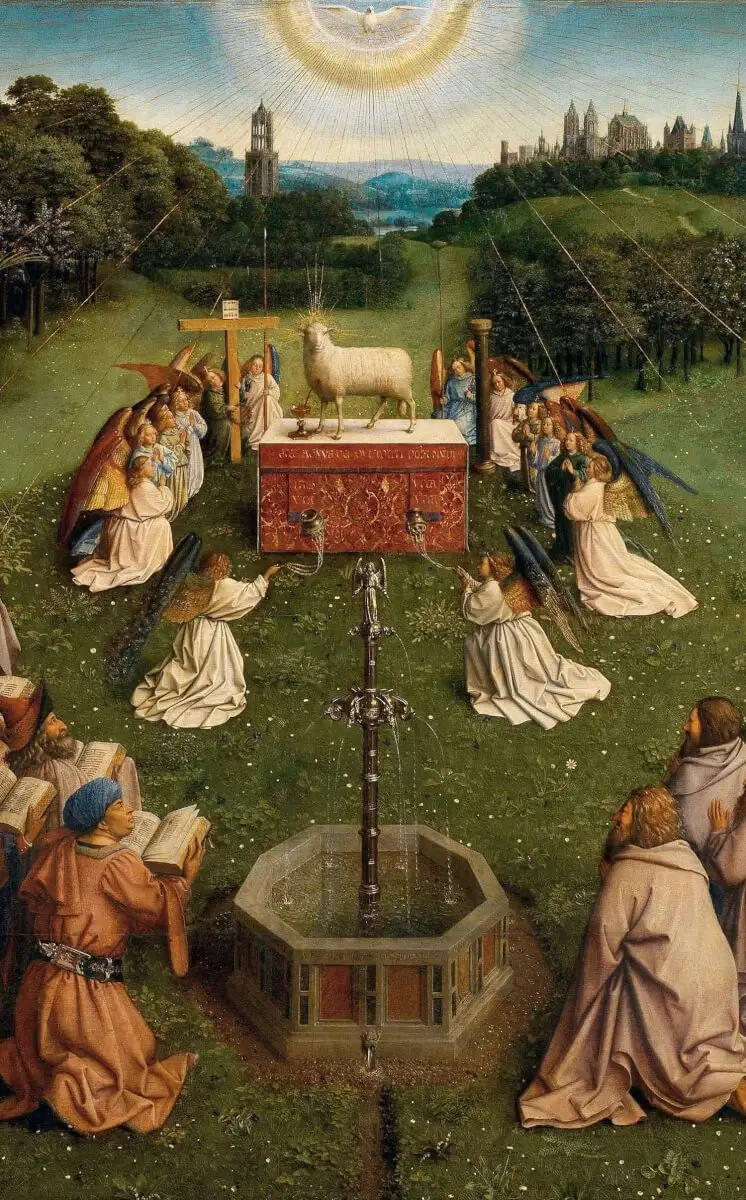
The Liturgy
Trinity Lutheran Church uses the historic liturgy, an order of service that the Christian Church has been using for over 1600 years and that has roots that are over 2000 years old. We are not looking to do something new, cutting edge, or fancy. Instead we join with the rest of the Holy Christian Church throughout all time and space, singing the words they sang, confessing the faith they confessed, and possessing the same Lord Jesus Christ as they. Our services are reverent and filled with singing.
“Explanation of the Common Service”
“God wants Himself to be known, He wants Himself to be worshiped, in such a way that we receive benefits from Him and receive them because of His mercy, not because of our merits. This is the richest consolation in all afflictions.”
The Proclamation of the Gospel
“I believe that I cannot by my own reason or strength believe in Jesus Christ, my Lord, or come to Him; but the Holy Spirit has called me by the Gospel.” Jesus charged his disciples in Mark 16:15, “Go into all the world and proclaim the gospel to the whole creation.” Jesus says of those He sends to preach His Word, “The one who hears you hears me” (Luke 10:16). And commenting on this in Romans 10:13-ff. St. Paul writes, “For ‘everyone who calls on the name of the Lord will be saved.’ How then will they call on him in whom they have not believed? And how are they to believe in him of whom they have never heard? And how are they to hear without someone preaching? And how are they to preach unless they are sent? As it is written, ‘How beautiful are the feet of those who preach the good news!’ [Isaiah 52:7]… So faith comes from hearing, and hearing through the Word of Christ.”
The proclamation of the Gospel is the living voice of Christ speaking to his Church. Through the proclamation of the Gospel the Holy Spirit works to create and sustain faith in Christ, as it is written in 1 Corinthians 12:3, “no one can say ‘Jesus is Lord’ except by the Holy Spirit.”
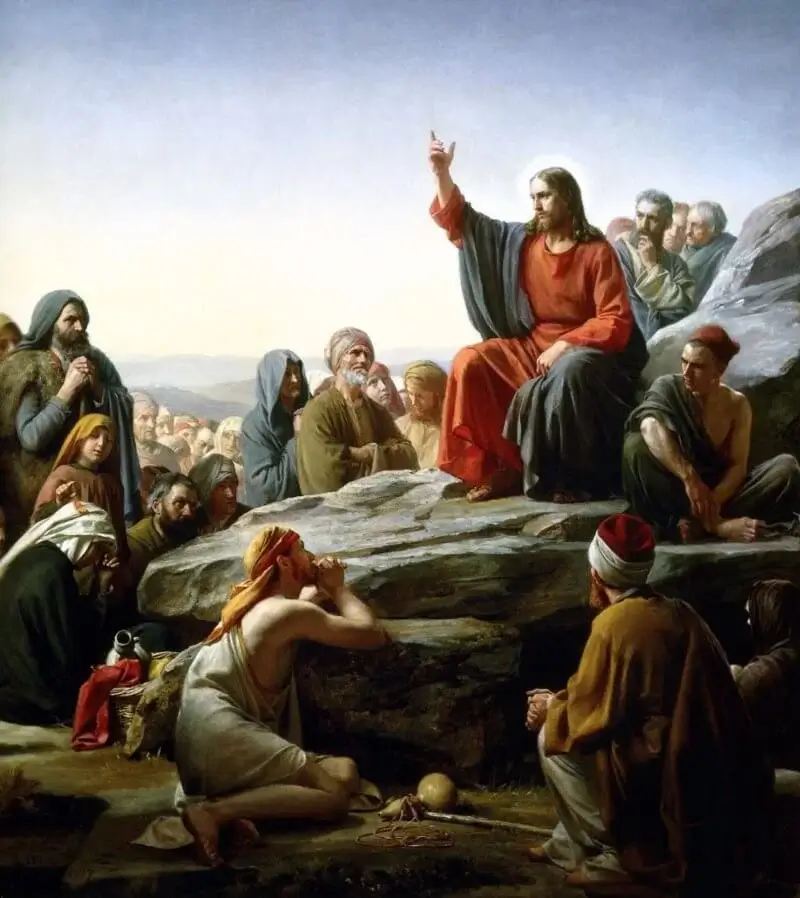
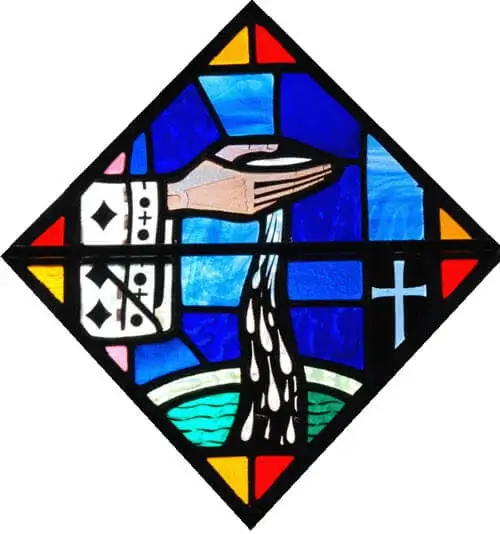
Baptism
“Baptism is not just plain water, but it is the water included in God’s command and combined with God’s Word,” as Jesus says in Matthew 28:19, “Therefore go and make disciples of all nations, baptizing them in the name of the Father and of the Son and of the Holy Spirit.”
Baptism “works forgiveness of sins, rescues from death and the devil, and gives eternal salvation to all who believe this, as the words and promises of God declare,” as Jesus says in Mark 16:16, “Whoever believes and is baptized will be saved, but whoever does not believe will be condemned.” And as St. Peter writes in 1 Peter 3:21, “Baptism now saves you.”
It is not the water that does these great things, “but the Word of God in and with the water does these things, along with the faith which trusts this Word of God in the water. For without God’s Word the water is plain water and no Baptism. But with the Word of God it is a Baptism, that is, a life-giving water, rich in grace, and a washing of the new birth in the Holy Spirit. St. Paul writes in Titus 3:5-8, “He saved us through the washing of rebirth and renewal by the Holy Spirit, whom he poured out on us generously through Jesus Christ our Savior, so that, having been justified by his grace, we might become heirs having the hope of eternal life. This is a trustworthy saying.”
Confession and Absolution
“Confession has two parts. First, that we confess our sins, and second, that we receive absolution, that is, forgiveness, from the pastor as from God Himself, not doubting, but firmly believing that by it our sins are forgiven before God in heaven,” as Jesus says in John 20:22-23 when he breathed on his disciples, “Receive the Holy Spirit. If you forgive anyone his sins, they are forgiven; if you do not forgive them, they are not forgiven.”
Therefore our church believes “that when the called ministers of Christ deal with us by His divine command, in particular when they exclude openly unrepentant sinners from the Christian congregation and absolve those who repent of their sins and want to do better, this is just as valid and certain, even in heaven, as if Christ our dear Lord dealt with us Himself.”
Confession and Absolution takes place at the beginning of each Divine Service with a general confession of sins, which we speak together, followed by the Absolution. Trinity Lutheran Church also continues to offer individual Confession and Absolution for any who desire it, so that people who feel burdened by sin and guilt may receive the forgiveness of sins and comfort from a troubled conscience.
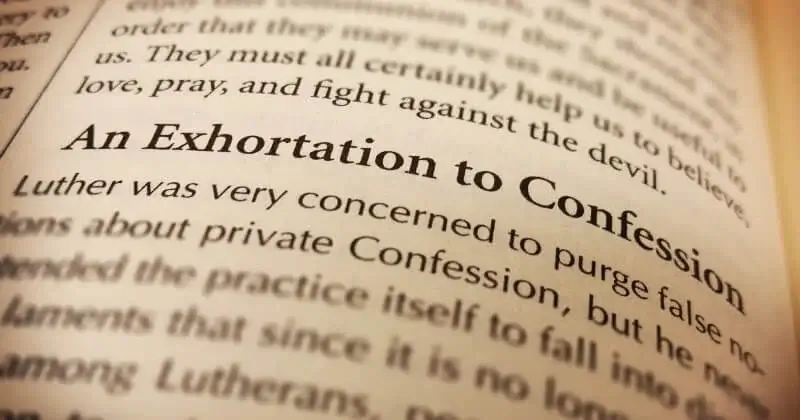
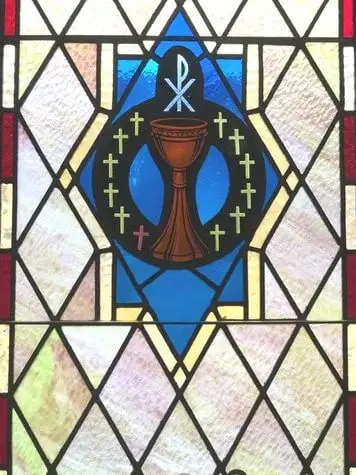
The Lord’s Supper
The Lord’s Supper “is the true body and blood of our Lord Jesus Christ under the bread and wine, instituted by Christ Himself for us Christians to eat and to drink,” as Jesus says in Matthew, Mark, and Luke, and as St. Paul records in 1 Corinthians, “Our Lord Jesus Christ, on the night when he was betrayed, took bread, and when he had given thanks, he broke it and gave it to the disciples and said, ‘Take, eat; this is my body, which is given for you. This do in remembrance of me.’ In the same way also he took the cup after supper, and when he had given thanks, he gave it to them, saying, ‘Drink of it all of you; this cup is the new testament in my blood, which is shed for you for the forgiveness of sins. This do, as often as you drink it, in remembrance of me.’”
In the Lord’s Supper the words “given and shed for you for the forgiveness of sins” “show us that in the Sacrament forgiveness of sins, life, and salvation are given us through these words. For where there is forgiveness of sins, there is also life and salvation… Whoever believes these words has exactly what they say: ‘forgiveness of sins.’”
